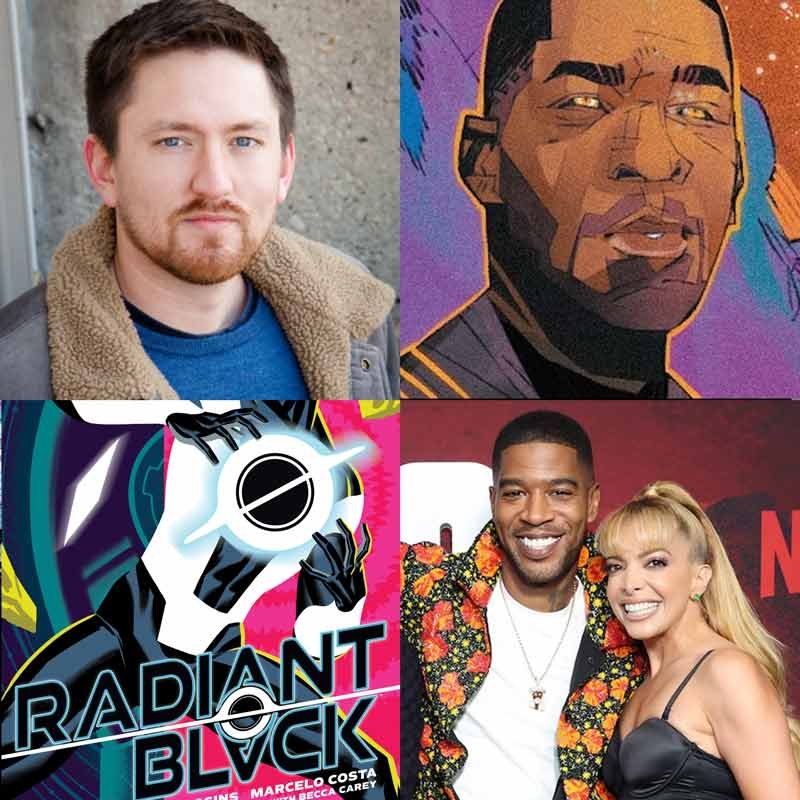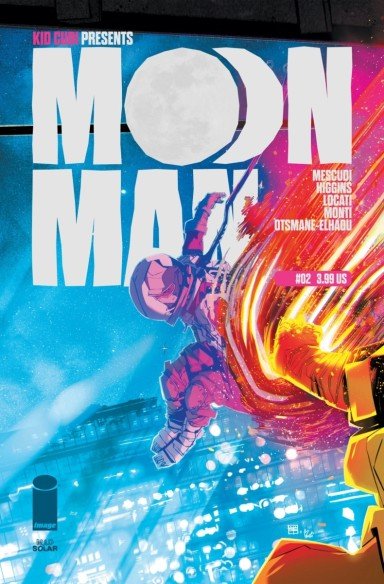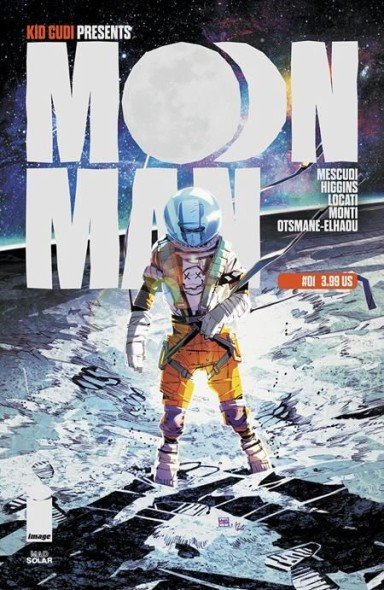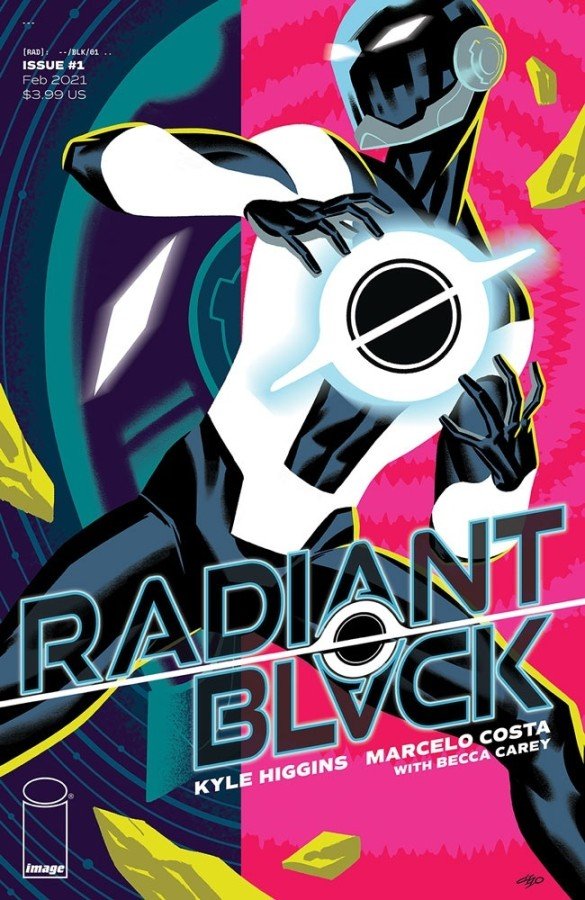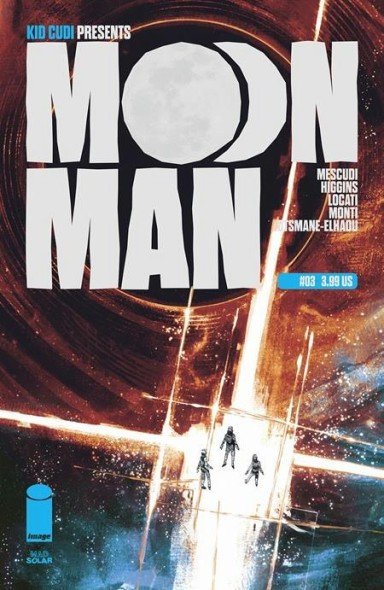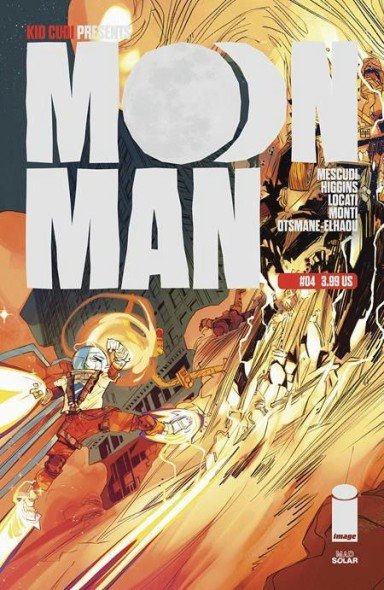What does the future hold for our late-stage capitalist society with mega-corporations owning and controlling everything? How can the world-building skills of the makers of films and comics help us imagine a better future?
Kyle Higgins is an Eisner award-nominated #1 New York Times best-selling comic book author and award-winning filmmaker known for his work on DC Comics’ Batman titles as well as his critically-acclaimed reinventions of Mighty Morphin Power Rangers for Boom! Studios/Hasbro, Ultraman for Marvel Comics, and his creator-owned series Radiant Black, NO/ONE and Deep Cuts for Image Comics. Kyle is the founder and creative director of Black Market Narrative and The Massive-Verse.
Karina Manashil is the President of MAD SOLAR. After graduating from Chapman University with a BFA in Film Production, she began her career in the mailroom at WME where she became a Talent Agent. In 2020, she partnered with Scott Mescudi and Dennis Cummings to found MAD SOLAR. Its first release was the documentary “A Man Named Scott” (Amazon), and she then went on to Executive Produce Ti West trilogy “X,” “Pearl” and “MaXXXine” (A24). Manashil received an Emmy nomination as an Executive Producer on the Netflix animated event “Entergalactic." She also produced the Mescudi/Kyle Higgins comic book “Moon Man” which launched through Image Comics. She is next producing the upcoming Mescudi/Sam Levinson/The Lucas Bros film “HELL NAW” (Sony) and the animated feature “Slime” from auteur animator Jeron Braxton.
KYLE HIGGINS
Exploring the Themes of Moon Man
A lot of millennials thought the world we were coming of age in was like what NASA used to represent: discovery for the sake of discovery and exploring for the sake of the human species and the human condition. Those were the tenants we thought we were going to be entering into as artists, scientists, explorers. And those ideals are gone. That isn't the world that exists now. Increasingly, it feels like a late-stage capitalist society with mega-corporations owning and controlling everything.
SCOTT MESCUDI aka KID CUDI
When I was younger, I used to draw all the time, so cartoons, comic books, anything visual just got me really quickly when I was younger. And I wanted to be a cartoonist up until I was 14, 15. And then I had this idea to be a rapper, but animation cartoons, these were things that I was super passionate about. It's something that never changed throughout my life. You know, as I grew older, I still had an interest in comics. I still had an interest in animation. And reading comics as a kid, as a lot of my fans know, this Moon Man thing has been kind of my theme from the very beginning. And I think it wasn't until my fourth album, Indicud, where I really started to conjure up a world where this Moon Man character existed. A couple years ago, it kind of got to this point where I was like, man, this is something that I want to actually bring to life. And I thought telling it in comic form would be the best way. Karina, you mentioned Kyle, and I just did my research, and I was like, "Yes, he's the guy!" You know, it was like a no-brainer. I was like–Wow, I really finally have an opportunity to make something that I've spent 15 years of my career building, making it a real thing and bringing him to life.
HIGGINS
So, as we started talking and going through what this could look like. I run a creator-owned superhero universe at Image Comics called the Massive-Verse, which is spearheaded by the main book I write called Radiant Black. I like to describe it as it's like Power Rangers with adult problems. It's very contemporary kind of reimaginings of superhero storytelling for the 2020s. So in that context, talking about what any type of new superhero and, in this case, what a new black superhero in 2024 could look like, what the threats would be, what the world might look like if it's maybe not even five minutes in the future. I would argue it's like two and a half minutes in the future. And then what kind of really complex, emotionally layered journey we could put this character through?
The Impact of AI on the Creative Process
I write science fiction, so it's fascinating from a technological standpoint, but we have dozens and dozens of years of science fiction warning us about technology unchecked. The irony is that now so many of those science fiction stories have probably been used to feed the AI training algorithms that they are now repurposing and ripping off. So it's very ironic in that regard to me. I've heard artists refer to AI as a plagiarism machine, and I do think that's a very apt descriptor. I have a lot of friends who are affected by this. And these tech companies think if we can make it easier and cheaper to capture some aspect of the human spirit and then, by God, isn't that best for shareholders?
KARINA MANASHIL
The Challenges of the Next Generation addressed in Moon Man
So the feeling that we've essentially been priced out of the life that we were supposed to lead. So, we were all taught to put our heads down, go to school, and get a job. You're going to afford a family, a house, kids, all the things that your parents had, you're going to have if you just follow the same path. But none of the things that were promised has a path. So the collective majority who grew up on technology and have no problem living inside of it are saying [of AI]: Hey, can this thing save me? Can I find my out?




